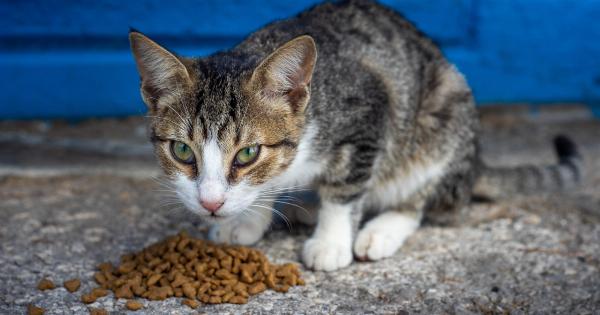Raw foods have become increasingly popular in recent years, with many people seeking healthier, more natural diets. While raw vegetables and fruits can provide many nutritional benefits, some foods can be potentially dangerous if consumed raw.
In this article, we’ll explore nine foods that can pose a health risk when eaten in their raw form.
1. Raw Eggs
Eggs are a common ingredient in many foods, including salads, smoothies, and desserts. However, raw eggs can put you at risk of salmonella, a type of bacterial infection. This infection can cause fever, diarrhea, and abdominal pain.
In severe cases, it can even be life-threatening, particularly for those with weakened immune systems.
If you do want to consume eggs raw, make sure to use pasteurized eggs. These have been treated with heat to kill any harmful bacteria. Alternatively, you can opt for cooked eggs to minimize the risk of infection.
2. Unpasteurized Dairy
Raw dairy products such as milk, cheese, and yogurt can also harbor harmful bacteria such as E. coli, salmonella, and listeria. These bacteria can cause a range of health problems, from mild stomach upset to more serious infections.
To minimize your risk of infection, choose pasteurized dairy products. These have been treated with heat to kill any harmful bacteria.
If you do choose to consume raw dairy products, make sure they come from a reputable source and have been properly tested for bacteria.
3. Raw Meat and Poultry
Raw meat and poultry can contain a range of harmful bacteria, including E. coli, salmonella, and campylobacter. These bacteria can cause a range of symptoms, including fever, diarrhea, and abdominal pain. In severe cases, they can even be life-threatening.
To minimize your risk of infection, always cook meat and poultry thoroughly before consuming. Use a meat thermometer to ensure that the internal temperature reaches at least 165°F (74°C). Avoid consuming rare or undercooked meat and poultry.
4. Raw Sprouts
Raw sprouts, including alfalfa, bean, and clover sprouts, have been linked to several outbreaks of foodborne illness in recent years. These outbreaks were caused by bacteria such as salmonella and E.
coli, which can thrive in the warm, humid conditions required for sprouting.
To reduce your risk of infection, avoid consuming raw sprouts or grow your own at home, where you can control the growing conditions. If you do choose to consume sprouts, make sure they are thoroughly washed and cooked before eating.
5. Raw Shellfish
Raw shellfish, including oysters, clams, and mussels, can harbor harmful bacteria, viruses, and parasites. These can cause a range of symptoms, including diarrhea and abdominal pain. In severe cases, they can even be life-threatening.
To minimize your risk of infection, always cook shellfish thoroughly before consuming. Avoid consuming raw oysters and other raw shellfish, particularly if you have a weakened immune system.
6. Lima Beans
Lima beans contain a toxic compound called linamarin, which can be converted to hydrogen cyanide in the body. While cooking can break down this compound, raw lima beans can be potentially dangerous.
To minimize your risk of toxicity, always cook lima beans thoroughly before consumption. Avoid consuming raw or undercooked lima beans.
7. Cashews
Cashews can contain a toxin called urushiol, which is also found in poison ivy and poison oak. This toxin can cause skin irritation and even anaphylaxis in those with a cashew allergy.
To minimize your risk of reaction, always buy roasted or processed cashews, which have had the urushiol removed. Avoid consuming raw cashews or making your own cashew milk at home without proper processing.
8. Potatoes
Raw potatoes contain a toxic compound called solanine, which can cause symptoms such as nausea, vomiting, and diarrhea if consumed in large quantities.
While solanine is mainly found in the green parts of the potato, it can also be present in the flesh.
To minimize your risk of toxicity, always cook potatoes thoroughly before consumption. Avoid consuming raw or undercooked potatoes, particularly if they have green spots or sprouts.
9. Red Kidney Beans
Red kidney beans contain a toxic compound called phytohaemagglutinin, which can cause symptoms such as nausea, vomiting, and diarrhea if consumed in large quantities.
While cooking can break down this compound, raw or undercooked kidney beans can be potentially dangerous.
To minimize your risk of toxicity, always cook red kidney beans thoroughly before consumption. Boil them for at least 30 minutes, even if you plan to use them in a slow cooker or other recipe.
Conclusion
While raw foods can provide many nutritional benefits, it’s important to be aware of the potential health risks associated with certain foods.
By choosing pasteurized dairy products, cooking meat and poultry thoroughly, and avoiding raw sprouts and shellfish, you can minimize your risk of foodborne illness. By properly preparing and cooking lima beans, cashews, potatoes, and red kidney beans, you can avoid the potential toxicity of these foods.































